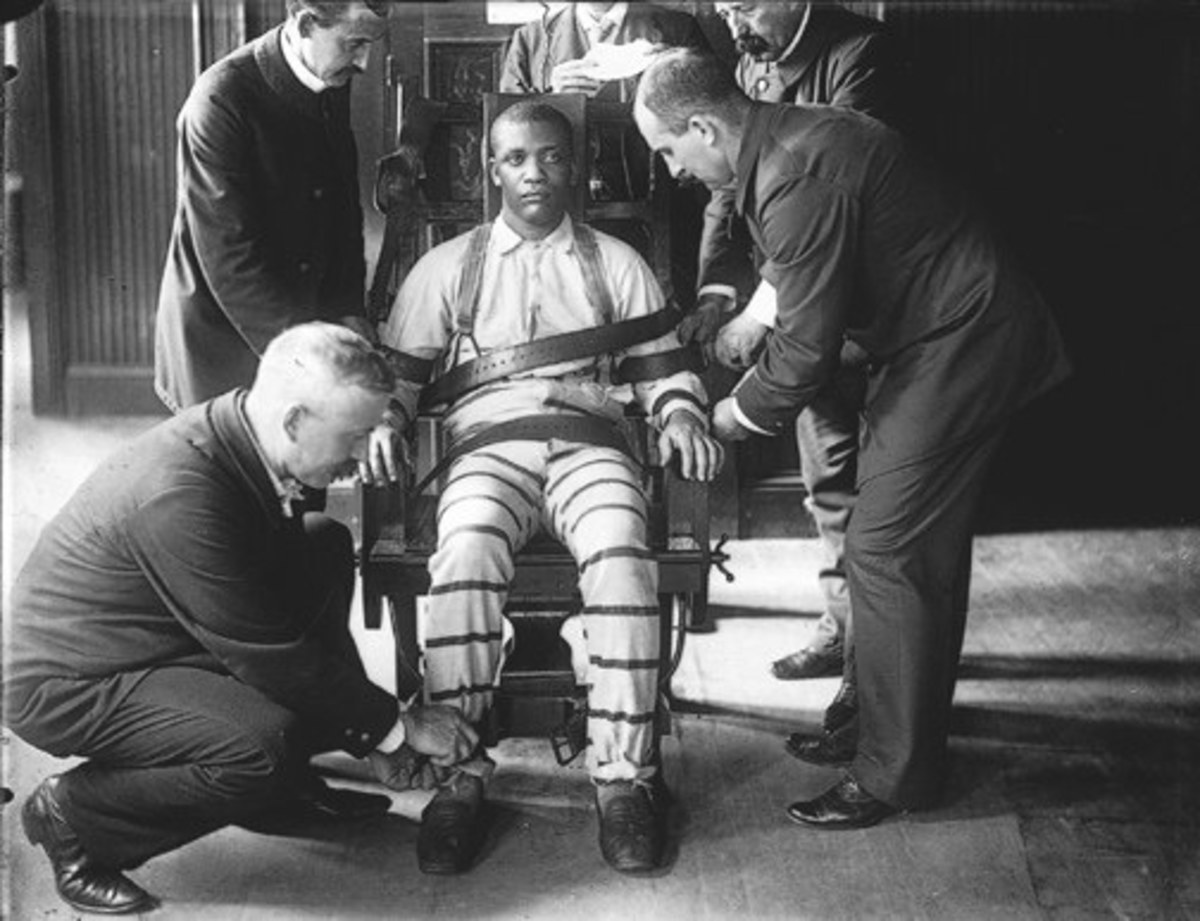- HubPages»
- Education and Science»
- History & Archaeology»
- History of the Americas»
- American History
Fragility in Early America Culture
Things were WEIRD when our country was first founded

Dirty Secrets
One of the major themes in Early American literature concerns the dangerous consequence of repressing a traumatic experience or a troubled past. Yet this danger also opens up the opportunity in the stories, to let the characters explore this, and, sometimes, come to terms with it.
For some characters, however, the past is too dangerous to contract, and they are driven far past the point of reason in the process. The way in which the characters are perceived in public, versus how they behave in private, is key to their experience of repression.
In the novel Weiland, Theodore Weiland, who seemingly lived a charmed and luxurious life, complete with an intellectual education, fails to understand the peculiar circumstances behind his father's death and consequently, falls prey to the complex designs of a ventriloquist- muting his voice for the voice of God.
Minister Arthur Dimmesdale in The Scarlet Letter is another character who suffers from the consequences of repression. In Dimmesdale's case, repressing sin through brilliant church services, only to despise how he actually behaved in private, is the cause of his demise and eventual death.
In both of these stories, the characters mentioned fail to realize the role of their past in the present and consequently fall into madness.
Arthur Dimmesdale is forced to project a happy existence despite his inner sense of falseness. His hypocrisy toward Hester Prynne makes him physically sick, knowing he works with the same people who have shunned and ostracized her for her transgression.
Hester constantly struggles to understand the true nature of faith, and the purpose of her daughter Pearl due to her isolation caused by Dimmesdale. Hester also sees something in her daughter's face that reminds her of her absentee father, claiming "It was a face, fiend like, full of smiling malice".
While living in solitude with her daughter, Hester's mind begins to wander. This is dangerous because once she has realized she is capable of doing bad things, even though she hasn't followed through with anything, it is just as bad as following through with her actions.
Her loneliness is so extreme the she contemplates taking her own life and her daughter's as a way to escape their existence.
The true villain in The Scarlet Letter, however, is Hester's husband, Roger Chillingworth. What began as a truth seeking plot of revenge regarding Hester's affair, ends with Chillingworth's sad and stoic realization that there is no true way to understand the nature of one's heart.
His intellectual sin of attempting to disgrace two people for his own enjoyment leaves him a defeated man, knowing that "No friendly hand was pulling at his heartstrings", when interrogating Hester and Dimmesdale.
Despite her isolation from normal society, Hester attempts to erase her past with Dimmesdale by reminding him that, "The past is gone! Wherefore should we linger upon it now?" She gives Dimmesdale the opportunity to erase their past together and for a brief moment, he is willing to let go. Unfortunately, he dies when this happens, as he ignores his family during the last sermon he performs, dying shortly after making his confession of love to Hester.
The theme is indicative that love is never in an ideal state. The nature of Dimmesdale's death is symbolic because Chillingworth was there when it happened and comes to realize how repressed his own inadequacies are through his quest for a confession from Hester. It becomes clear Hester never loved him in the first place.
Trashy Fiction

The High Cost of Low Living
Theodore Wieland's problems of repression are more complicated. The dangerous ability he has to talk with God, when in reality his talking to a deranged ventriloquist is the cause of his family's death and his own death.
The author of Weiland makes examples of the characters in the story that have fragmented bits of information. The story is purposely written in fragments to display the inconsistencies with actual truth. Little is known of Weiland's father's death; this is stated by Clara, the narrator of the story, when she observes, "Such was the end of my father. None was surely more mysterious".
However, Clara and her brother inherit wealth and seem to forget about what happened to their father; "Self denial- seasonably exercised, is one means of enhancing our gratifications".
In the beginning of the story, Theodore and Clara's intentions appear pure- something that the author is wary of because it causes people to do bad things or be mislead, which is often the case with having free will.
Throughout the duration of the story, it becomes clear that Weiland had never truly come to terms with his father's death, as he represses rational thought through committing murder. This is stated at his sentencing in court as "My purposes have been pure; my wishes defatigable; but not until lately were these purposes thoroughly accomplished".
Clueless to the severity of his actions, Weiland is still repressing the fact that killing his family was just because he notes his intentions were pure. Essentially, the author punishes Weiland for falling into his father's ideologies, and never letting him stop until the damage has been done.
Unspeakable Crimes
In both stories, the consequences of repression are fatal, and those who behave this way are as good as dead. Hester Prynne is reduced to isolation from the rest of the world because of the repressed actions of a hypocritical minister.
Clara is confused and disoriented at the end of Weiland as she tries to understand that her own brother's "bursts of passions" and "menacing actions" have also left her isolated from those she loved and trusted.
The tragedy behind both stories is that, despite interventions, Theodore and Dimmesdale are obliged to uphold this faulty purpose in their lives and truly feel what they are doing is right, despite the many people that have either hurt or killed with their actions. Not only are their actions repressive, they are incredibly ignorant, veiled under a guise of moral responsibility.
It appears to me that Weiland had become schizophrenic, or at least morbidly depressed as a result of his fragmented and sheltered upbringing. Never understanding the traumatic circumstances behind his father's death, he became obsessed with material goods and knowledge, meanwhile never having a true father figure to turn to.
Unfortunately, he chooses to obey a God only of his own understanding, which grants him the liberty to behave anyway he wants. Although not a victim of a traumatic experience early in life, Dimmesdale follows suit.
In the process, Dimmesdale becomes less of a man, and more of a self-reflexive penitent, consumed with self pity.
These two stories should serve as a reminder that repressing traumatic experiences should be avoided and that dealing with these issues head on, with some form of a common understanding, is always the more desirable approach.







